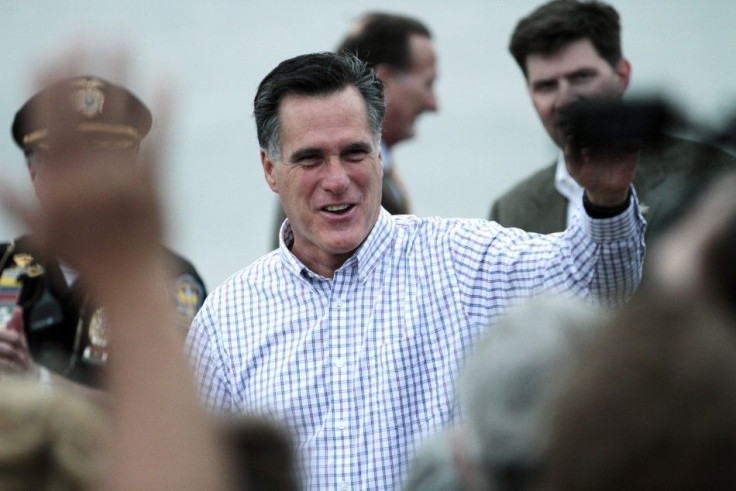Romney Projected Winner Of Maryland, D.C., Primaries

Mitt Romney was overwhelmingly the winner in Maryland and the District of Columbia's Republican primary races, further cementing his status as the GOP's presumed nominee with the best chance at beating President Barack Obama in the race the White House in November.
Romney swept Maryland with 53 percent of the vote, while his closest competitor, Rick Santorum, trailed him with about 26 percent of the vote, according to early projections from the Maryland State Board of Elections. Newt Gingrich and Ron Paul -- who received 10 percent and 8 percent, respectively -- remain a questionable presence in a race that has essentially become a two-way contest between Romney and Santorum.
Voter turnout was modest in Maryland, where local media outlets reported that voting precincts were sparse throughout the day.
Poll worker after poll worker described the same scene at precincts across Maryland on Tuesday: no lines and light primary election turnout, reported the Baltimore Sun on Tuesday afternoon, which quoted several individuals who said the race was the slowest election they had seen in recent memory.
The Maryland State Board of Elections predicted that about 25 percent of the state's Republican electorate would turn out to cast their votes in the Republican primary and a handful of congressional races.
Early exit poll results from the Washington Post found that more than half of Maryland Republican voters have a college degree, and nearly half have incomes of $100,000 or more, demographics that have typically favored Romney this election cycle. CNN exit polling reports that at least 36 percent of Maryland GOP voters have incomes between $100,000 and $200,000, while another 33 percent earn between $50,000 and $100,000 per year.
Only about 32 percent of voters described themselves as evangelical Christians, according to CNN, an unsurprising figure since the state -- where registered Republicans outnumber Democrats two-to-one -- is home to a relatively moderate Republican demographic. That's far below the average across all GOP primary contests this year, where the evangelical vote has averaged 51 percent.
The economy and the ability to defeat President Obama in November were once again the top reasons among Maryland voters for voting for Romney, issues that have been the main concerns of the Republican electorate in general this election cycle, CNN and CBS News report. Forty-eight percent of voters said the nation's economy is getting worse -- compared to only 22 percent who said they believe it's beginning to recover.
Maryland's primary voters were also overwhelmingly white -- 89 percent of Republican voters were white, while only 3 percent identified as black and 7 percent identified as other. While that makeup is disproportionate with state demographics, where African-Americans make up almost 30 percent of the population and whites 58 percent, according to the 2010 U.S. Census. The state's primary race was only open to Republicans, which could explain the lopsided turnout.
Romney carried about 43 percent of the state's very conservative voters, a group that has in the past favored Santorum, according to CBS, while Santorum came in close with 37 percent of those voters. Romney is also carrying the lead among conservative voters with 52 percent of their support, compared to 30 percent for Santorum.
While almost 40 percent of Maryland voters said Romney's positions are not conservative enough, about half said his ideological stance was just right. Meanwhile, a third of voters said Santorum's issue positions are too conservative.
There are a total of 37 delegates at stake in Maryland. As of Tuesday night, CBS reports that Romney has secured 16 delegates in the state, which are allocated through a combination of a winner-take-all system and proportional distribution. Each congressional district has three delegates who must vote for whomever wins their district, while a remaining 13 delegates are awarded to the candidate who wins statewide.
While there is little exit polling information available from Washington, D.C., NBC News and The Associated Press projected Romney as the winner soon after polls closed. Santorum did not appear on the ballot in the district.
Local media outlets report voter turnout in the district, which has 16 delegates up for grabs, has been exceedingly low, which could be attributed to the fact that three-quarters of the city's 460,000 registered voters are Democrats.
Although several pundits and politicians alike have insisted it is time for Santorum to step aside so the Republican Party can rally around Romney ahead of the general election, on Tuesday night Santorum indicated he intends to stay in the race until the very end.
Pennsylvania and half the country's voice has yet to be heard, he said while addressing supporters on Tuesday night.
© Copyright IBTimes 2025. All rights reserved.





















